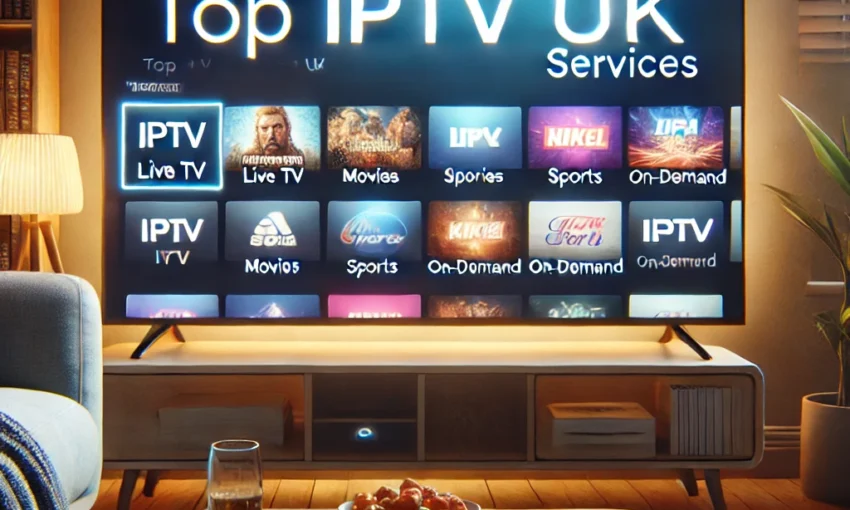The rise of streaming platforms has completely changed how we consume television. One of the most significant innovations in this space is IPTV—short for Internet Protocol Television. Unlike traditional broadcasting, IPTV delivers content over the internet. This shift not only introduces new possibilities but also raises new questions, especially when it comes to the difference between British IPTV and other services.
In this complete guide, you’ll explore every important detail about IPTV. From features and legalities to how it compares with traditional and international services, we’ve covered it all for you. This is your go-to resource to understand the difference between British IPTV and everything else out there.
What is IPTV and How Does It Work?
To begin with, IPTV is a technology that uses your internet connection to stream television shows, movies, live sports, and more. Instead of broadcasting via satellite or cable, IPTV relies on a stable broadband connection to deliver high-quality streams directly to your device.
This method is not only efficient but also offers much more flexibility than traditional viewing. For example, you can pause, rewind, or even watch content on-demand. The core benefit lies in its adaptability and convenience.
If you’re new to IPTV, we recommend exploring our main explainer:
The Evolution and Rise of British IPTV
Now let’s look at how British IPTV started. The UK was quick to adopt IPTV services thanks to its fast internet infrastructure. As early as the 2010s, platforms like BT TV and TalkTalk TV began to integrate IPTV into their offerings. Over time, these services evolved to support features like Catch-Up TV, Video on Demand, and even 4K UHD streaming.
Furthermore, the launch of hybrid systems like Freeview Play and Freely strengthened IPTV adoption among British households. These platforms provided familiar terrestrial channels over the internet, combining the best of both worlds.
For more historical context, check this excellent Wikipedia overview of IPTV.
Features That Define British IPTV Services
So, what truly makes British IPTV unique? Let’s break down the main features that set it apart from generic IPTV platforms:
- Access to popular UK networks: BBC, ITV, Channel 4, and Sky
- Support for British catch-up services like BBC iPlayer and My5
- Time zone alignment with GMT/BST for accurate EPG (TV guide)
- Optimized for local internet: UK ISPs prioritize IPTV bandwidth
- UK-based customer support and payments
These features ensure a smoother, more localized experience for users in the United Kingdom.
Need help choosing the right provider?
Understanding the Difference Between British IPTV and Traditional TV
At this point, it’s crucial to explore how IPTV compares to old-fashioned TV systems. One of the key differences between British IPTV and traditional services is how the content is delivered. Traditional services rely on scheduled programming and physical broadcast signals. In contrast, IPTV uses an internet-based approach.
Key Comparison Points
| Feature | British IPTV | Traditional TV |
|---|---|---|
| Delivery Method | Internet connection | Satellite/Cable |
| Flexibility | On-demand & live options | Mostly live only |
| Compatibility | Mobile, Smart TV, PC | Mainly TV-only |
| Interactivity | Pause, Rewind, Catch-Up | Basic or none |
| Subscription Cost | Generally cheaper | Often bundled & expensive |
Moreover, British IPTV allows greater customization, which appeals to modern viewers.
Exploring the Difference Between British IPTV and Global IPTV Services
Besides local vs. traditional, let’s also consider how British IPTV stands apart from international IPTV options. It might seem similar on the surface, but the differences are notable.
Localized Content
First and foremost, IPTV emphasizes UK-specific channels, sports, and news, while global providers may lack these local favorites. Services like Tiviplay and Flixtele offer rich local libraries that include:
- BBC One & Two
- Sky Sports
- ITV & Channel 5
- Local news segments
- British-themed documentaries and shows
You can compare the top two UK-centric platforms here:
Time Zones and Legal Compliance
Another key difference between British IPTV and overseas services is the legal framework. UK services operate under Ofcom regulations and follow strict copyright rules. Meanwhile, international services might operate in legal grey areas.
Benefits of Using British IPTV in the UK
Clearly, there are several advantages to choosing a British IPTV provider if you reside in the UK. Here’s why:
- Seamless integration with local networks
- No buffering thanks to local server infrastructure
- Native apps for UK smart TVs
- EPG in local time
- Customer support in English
And since many providers offer pay-as-you-go models, there’s also flexibility in pricing.
To learn more, see:
Legal Concerns Around British IPTV Services
Now, a very important point: legality. The UK has clear laws about IPTV. As long as a provider has the rights to distribute the content they offer, it’s legal.
However, if a service streams pirated channels or premium content without licenses, it becomes illegal. That’s why choosing licensed services is essential. You can check a provider’s status by looking for transparent billing, partnerships, or UK business registration.
You can also refer to our breakdown here:
Devices Compatible with British IPTV Services
To take full advantage of IPTV in the UK, here are some of the best compatible devices:
Recommended Devices
- Smart TVs (Samsung, LG with WebOS, Android TV)
- Amazon Fire Stick
- MAG boxes
- Android TV boxes
- iPhone and Android smartphones
- Windows and macOS computers
Setup and Optimization
If you’re unsure how to set things up, you may also want to read:
Common Challenges Faced by British IPTV Users
Despite its many perks, IPTV isn’t perfect. Some users in the UK face:
- Low internet speeds in rural areas
- Geo-blocked content abroad (unless using a VPN)
- Difficulty differentiating legal from pirated services
- Occasional app crashes on older smart TVs
However, these issues are often solvable. For instance, using a VPN can help access your British IPTV while traveling abroad.
FAQs
What is the difference between British IPTV and other services?
British IPTV is tailored for UK audiences with local channels, legal compliance, and support for UK-based features like BBC iPlayer and EPG in GMT.
Is it legal to use IPTV in the UK?
Yes, but only if the service is licensed and abides by copyright laws. Avoid unverified sources.
Which is better, IPTV or traditional cable TV?
IPTV is more flexible, often cheaper, and supports mobile devices. Traditional TV lacks the customization IPTV offers.
Can I use IPTV abroad?
Yes, if you use a reliable VPN. Some services restrict content due to licensing laws.
What internet speed do I need?
At least 10 Mbps for smooth HD streaming; more for 4K quality.
Final Thoughts
To sum it up, the difference between British IPTV and traditional or international services lies in local optimization, legal status, and content relevancy. British IPTV is designed with UK viewers in mind. It offers easy access to domestic channels, integrates smoothly with British tech infrastructure, and follows strict UK laws.
Whether you’re cutting the cord or just exploring new entertainment options, IPTV could be your next smart move. Just make sure you go with a trusted, licensed provider.

